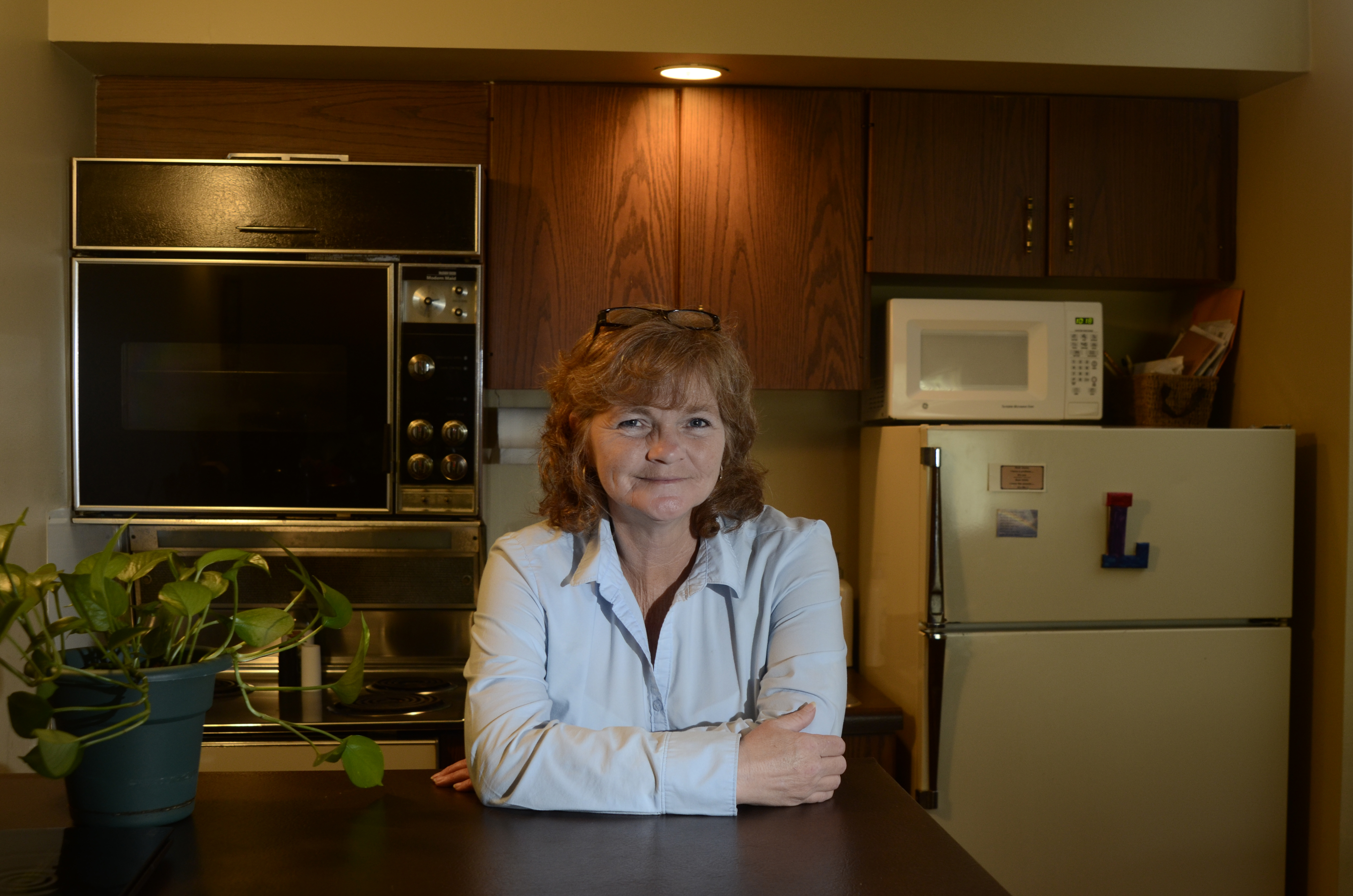Chattanooga Homeless Coalition plans to house chronically homeless
Friday, January 1, 1904
For eight years, Mary Lakes lived in and out of shelters, under bridges and in the woods.
Today, she is in her first permanent housing in 10 years.
"I feel like I'm a human being again," Lakes said last week, laughing.
The Chattanooga Homeless Coalition had people like her in mind when it formulated its plan to end chronic homelessness here within five years.
Other such lofty goals to address homelessness have come and gone, but what's different this time is that the homeless coalition is showing that it can be successful with the chronically homeless population, the most difficult to house and keep housed.
The numbers for the area's chronically homeless have risen and fallen within the past decade, coalition officials say, but the population has never been as large as it was in 2003 when the count was 698 and social service professionals collaborated to create the "Blueprint to End Chronic Homelessness in Chattanooga."
Before 2007, Chattanooga's chronically homeless population numbered more than 670, according to the coalition. But from 2007 to 2011, the coalition recorded an 89 percent decrease, said Executive Director Mary Simons.
Lakes was among 87 chronically homeless people in Chattanooga in 2011. Thus far this year, the number has declined to 70.
Chattanooga is among 120 communities participating in a national effort to house 100,000 homeless people by July 2013. The city was one of just 11 of those cities that reached its monthly goal to find housing for at least two chronically homeless people in March.
And the Chattanooga coalition has reached that goal every month since November 2011, occasionally going far beyond the goal, Simons said.
"We're meeting our monthly goal each month," she said. "As we continue to do that, we will get the people housed."
BY THE NUMBERS• $7.3 million -- Total spent annually responding to all aspects of homelessness in Chattanooga and Hamilton County• $3.3 million -- Amount used to fund emergency shelters and transitional housing programs• $1.1 million -- Amount used to fund primary health care & clinical services• $998,000 -- Amount used to fund emergency servicesSource: Chattanooga Homeless CoalitionCHRONICALLY HOMELESSDefinition: Chronically homeless means a person has been homeless for at least a year.HOW TO GET HELPA person who knows he or she is going to be homeless can start seeking help by calling United Way's 211 or the Chattanooga Community Kitchen.
It may take five years instead of one to find housing for all the area's chronically homeless people, but Simons insisted it will happen.
"The way we end it is by not letting anyone new be homeless," she said. "As soon as anyone gets into a situation, we want to empower that person to move into a new home so they don't get into the same situation again."
There is no system in place now. But the coalition and its partners are working with other social service agencies to establish one.
Lakes used to hop buses from town to town, hoping to change her luck. But her battle with alcoholism stymied any progress until 2009, when she landed in Chattanooga.
She visited the Chattanooga Community Kitchen regularly to shower. Kitchen outreach case worker Jord Field started talking to her about getting into a program.
Lakes was so addicted to alcohol that if she went more than a couple of hours without it, she had seizures. She said she hated her condition, but the 48-year-old mother of two had been drinking since age 8 and saw no hope for help.
But when Field mentioned a sobriety program, he took her hand and walked her to a counselor at the Homeless Health Care Center. The counselor signed her up for a six-week sobriety program.
While going through the program, Lakes said she managed to complete her first 24 hours sober in years, and since then she has never looked back. In July 2011, Chattanooga Room at the Inn helped her get an apartment at River Hills Manor.
That's the way the system should work, Simons said.
The Chattanooga Rescue Mission is the only emergency shelter open regularly in the city. It has 46 beds for men and 14 for women, well short of the number of beds needed each night, according to Simons and officials with Chattanooga Community Kitchen.
It's possible to find a space the same day a person becomes homeless, but there are no guarantees, said Jens Christensen, the Chattanooga Community Kitchen's assistant director.
The goal is to immediately put homeless people into shelter, then move them to permanent housing within 30 days, Simons said.
"The shelter is a first step for people to build trust and get connected to the services needed to successful move into housing," Simons said.
Using partnerships is a way to maximize resources. In January, about six or seven churches provided transportation and social support to help homeless people relocate from their camp site near First Baptist Church on Cameron Hill and into permanent housing. The coalition also found landlords willing to accept vouchers to house homeless people with criminal records.
It proves that if resources are available, the coalition and its partners can get people housed, said Simons.
